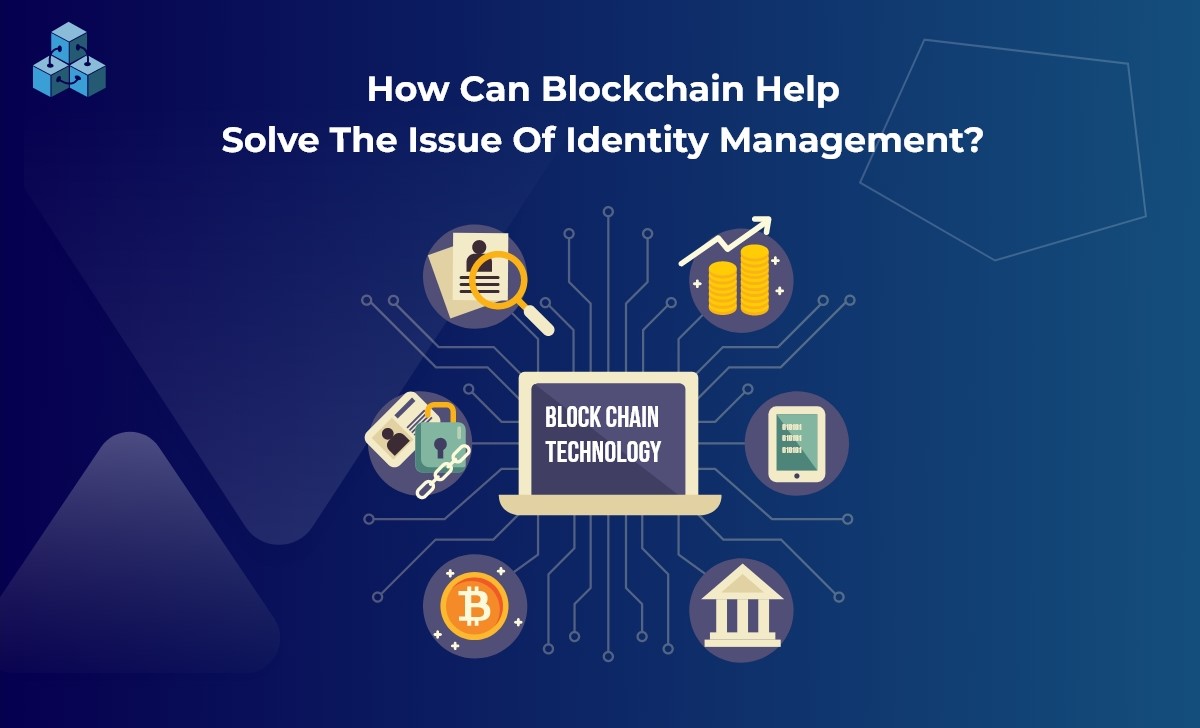Nowadays, massive data breaches have become all too familiar. The frequency of these attacks has raised a question of security about whether protection against future breaches is possible. Identity management is an aspect of our digital lives circling individuals and organizations to confirm and authenticate their identities. However, the traditional identity management system faces various problems related to security, privacy, and trust.
Blockchain has emerged as a solution that can help solve the issue of identity management. In this blog, we will examine how blockchain can enhance security, privacy and trust in identity management. And discuss its potential use cases and benefits.
Blockchain Identity Management: Solution
Blockchain ledger can help create a platform which protects individual identities from risk, fraud, and theft and reduce fraudulent activities. Technology can help businesses grow robust blockchain and handle authentication issues in several industries. Here are some benefits that blockchain offers in identity management:
- Enhanced Security:- Blockchain provides enhanced security by leveraging its decentralized and immutable nature. Traditional identity management systems store sensitive data in a centralized system and make it vulnerable to data breaches and hacking attempts. With Blockchain, identities can be securely stored and encrypted across the distributed network. Blockchain’s decentralized nature ensures that no single party can seize control of the data, which makes it difficult for hackers to hack or manipulate identities. The cryptographic algorithms ensure the data remains tamper-proof and provide an additional layer of security.
- Self-Sovereign Identity:- Blockchain introduces the concept of self-sovereign identity management, where people have complete control of their personal data and information. On the other hand, in a traditional identity system, people need to put their trust in a third-party entity with their data leading to matters regarding privacy and data misuse. In blockchain, individuals can own as well as manage their digital identities via private keys and cryptographic signatures. They can share their identity details without revealing unnecessary personal information, maintaining privacy and control over their data.
- Identity Verification and Authentication:- Identity verification is essential in various fields, such as healthcare, e-commerce and financial services. Blockchain can help streamline the process of identity verification and authentication. It stores the information on the blockchain ledger, a safe, secure and tamper-proof mechanism for verification. Services providers can verify these without depending on centralized authorities, which reduces the time and cost associated with manual processes. Automated smart contract development on blockchain facilitates automated verification and authentication, ensuring trust and efficiency.
- Anti-Fraud Measures:- Identity theft has become a significant concern in various sectors. Blockchain technology can combat identity theft by providing a safe and secure system. The immutable feature of the blockchain system assures that once an identity is enlisted cannot be altered or duplicated without consensus from the network. It makes it difficult for hackers and frauds to create fake identities or manipulate existing ones. Blockchain also offers advanced encryption techniques and biometric features, such as fingerprints and facial recognition, to enhance security and prevent fraud.
- User Experience:- Blockchain offers solutions that enhance the user experience by eliminating the need for redundant verification processes across multiple platforms. With a blockchain-based identity system, users can authenticate themselves across various services easing the need for multiple usernames and passwords. It enhances user comfort and reduces the conflict associated with onboarding and accessing different platforms.
- Cross-Border Identity Verification:- Blockchain can help simplify and streamline cross-border identity verification. Traditional systems struggle with interoperability and the exchange of private identity information across various platforms. Blockchain allows individuals to have a portable and verified digital identity to share and recognize across borders. It helps facilitate seamless traveling, access to international services and simplify identity verification process for migrants, refugees and individuals without identity documents.
Conclusion
Blockchain technology holds assurances for revolutionizing identity management, offering a safe, secure, private and user-centric approach. It enables self-sovereign identity and enhances security to streamline the verification process to fight identity theft and fraud. As Blockchain technology continues to grow and evolve, we can expect to unlock innovative identity management solutions which will provide individuals with control over their personal information while ensuring the integrity and security of the data. Embrace Blockchain to open new opportunities to transform various industries and reshape the digital ecosystem.
We at Blockcoders offer Blockchain Development Solutions with strategic guidance and consultation to help businesses grow and understand the potential of blockchain to leverage within their industry. Connect with our subject matters today to understand more about this!!
 info@blockcoders.pro
info@blockcoders.pro
 Our global presence :
Our global presence :
 |
|
 |
|
 |
|


